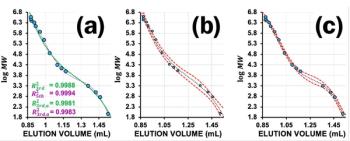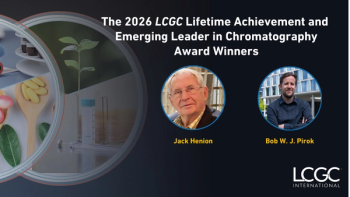
Mass Spectrometry - Instrumentation, Identification and Characterization
A Thursday morning session entitled, “Mass Spectrometry - Instrumentation, Identification and Characterization, will be held in Room W184D, with the session beginning at 8:30 am¬–presider is Peng Li of West Virginia University.
This morning session will be held in Room W184D, with Peng Li of West Virginia University presiding.
The first speaker, at 8:30, will be Ronghu Wu of the Georgia Institute of Technology, who will give a talk on effective mass spectrometry (MS) Methods for analysis of protein glycosylation in complex biological samples.
Next, Kate Comstock of Thermo Fisher Scientific presents collaborative work carried out with Christine Skaggs of Indiana University, on the development of a Their high-resolution mass spectral database for extractable and leachable identification. That talk starts at 8:50 am.
At 9:10, George Gachui of the University of Saskatchewan, in Saskatoon, Canad, will give a talk on MS analysis of phytosterols and tocopherols in plant oil samples.
“Practical Considerations for Quantitative Gas Analysis with Quadrupole Mass Spectrometers” will be presented next, by Gregory Their of Extrel CMS, LLC.This talk starts at 9:30 am.
At 10:05 am, session chair Peng Li of West Virginia University, will present a simple instrumentation method to suppress corona discharge of electrospray ionization (ESI) in negative ion mode.
The next talk is entitled, “Tracing the Fate of Lipid-based Gene Delivery Systems using Mass Spectrometry: Biological Distribution and Metabolism,” presented by Anas El-Aneed of the University of Saskatchewan. This talk will start at 10:25 am.
A performance comparison of mass spectrometers with different quadrupole sizes using measurements of xenon isotopes in air,” will be presented next, by Gregory Their of Extrel CMS, LLC. The presentation starts at 10:45 pm.
Qian Ruan of Bristol-Myers Squibb will close out the session with a presentation on a workflow for drug metabolite identification using MS and an advanced acquisition methodology. That presentation starts at 11:05 am.
Newsletter
Join the global community of analytical scientists who trust LCGC for insights on the latest techniques, trends, and expert solutions in chromatography.




